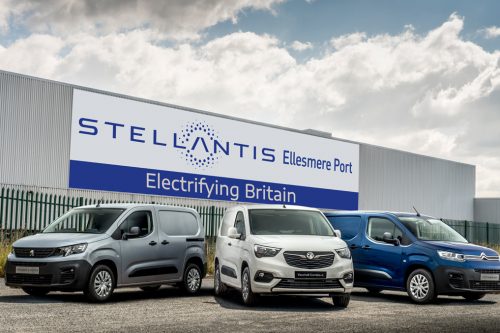Vauxhall owner warns Cheshire plant could close due to current Brexit deal

The owner of the Ellesmere Port Vauxhall motor plant has warned it could close unless the Government renegotiates its Brexit trade deal with the EU.
The plant employs around 1,000 staff which are moving from producing the marque’s Astra model to a new range of electric vehicle (EV) vans.
Stellantis, which also includes the Citroen, Fit and Peugeot brands, guaranteed Ellesmre Port’s future in July 2021, when it confirmed it would make new electric vans and passenger versions from 2022 as part of a £100m investment, including around £30m from the Government.
But in a submission to a Parliamentary committee’s inquiry on EV production, it warned it was no longer able to meet Brexit trade rules on where parts are sourced, due to the lack of UK-based battery manufacturers.
It said its commitment, two years ago to its UK operations was based on meeting the strict terms of the deal that 45% of the value of EVs should originate in the EU or UK from 2024 to qualify for trade without tariffs, reports Sky News.
Stellantis has called for that date to be extended to 2027 or “trade between the UK and EU would be subject to 10% tariffs”, it said.
It told the committee that this would put its UK plants at a “competitive disadvantage”
It added: “This is a threat to our export business and the sustainability of our UK manufacturing operations.
“To reinforce the sustainability of our manufacturing plants in the UK, the UK must consider its trading arrangements with Europe.”
The submission to the committee continued: “If the cost of EV manufacturing in the UK becomes uncompetitive and unsustainable, operations will close, manufacturers will not continue to invest and relocate manufacturing operations outside of UK, as seen with previously established UK manufacturers such as Ford and Mini.”
Sharon Graham, general secretary of trade union Unite, said: “This warning exposes the Government’s complete failure to adopt a cohesive and active industrial strategy. The Government has been warned for over a decade that it needed to invest in battery factories to ensure the smooth transition to electric vehicle production in the UK but it has failed to act.
“The lack of industrial strategy is not just affecting the automotive industry. Our foundation industries, such as steel, are facing an increasingly uncertain future as a result of a lack of direction and support from the Government.
“The entire manufacturing sector needs a huge boost of confidence and certainty, if it is to fulfil its potential. That will not happen if our government continues to rely on the vagaries of the market, rather than directly intervening to ensure that UK industry succeeds and thrives.”








